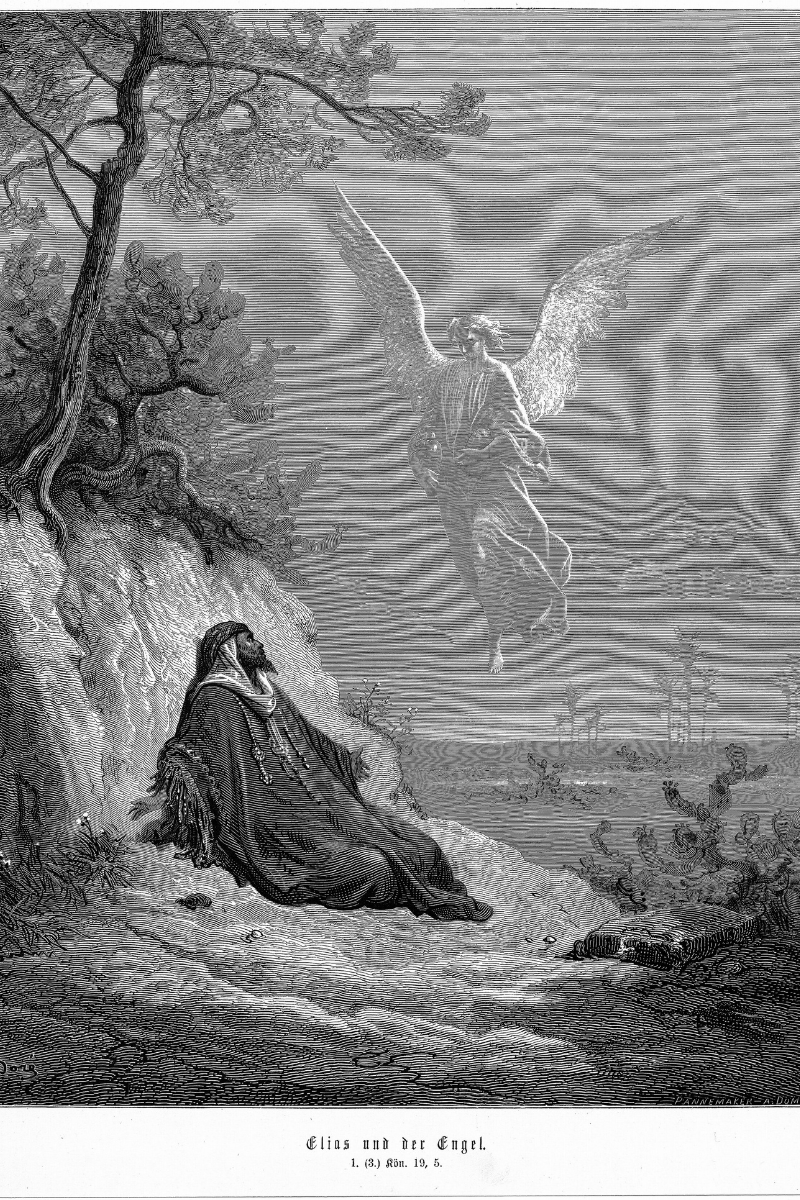
Sometimes, the best thing you can do is to tell yourself, “Go take a nap!”
This is a continuing series. Today’s post is “Go take a nap.” In this series, we are examining leadership burnout and the steps you need to implement as a leader to avoid (and recover from) burnout.
Contain within the Hebrew Scriptures is one of my favorite stories of all time. Written like a great movie blockbuster, this story has it all.
Murder.
Betrayal.
The beginning of a revolution.
Drama.
Rebellion.
Intrigue.
The Backstory
Elijah, a prophet to the nation of Israel is confronting the King. The wicked ruler Ahab has ravaged the lady with wife, the cruel and anti-God Jezebel. Elijah, the one urging the people to remain faithful to God, can only do so by confronting the King. 
In 1 Kings 18, he does just that. After years of prophecy, it is time for action. Elijah emerges from a foreign town called Zarephath (which means ‘melting pot’, probably a sign that it had economic ties to military arms production).1 Elijah, a prophet of Israel, emerges from his hiding place, located inside of Israel’s enemy, from a town producing tools to destroy Israel, to tell the king it’s time to face the music. The nerve of Elijah.
Yet as we shall see, this will also set the stage for his coming burnout.
Elijah confronts the king, his evil wife Jezebel, and her wayward prophets of Baal in a showdown to determine the true ruler of Israel. A comedic set of circumstances follow.
Elijah seemingly gives the prophets of Baal every advantage. They get to build their altar first, perhaps ending the confrontation early if Baal shows up. They get to pick the best bull for the sacrifice, and they can have as long as they want to win the showdown.
After hours of worship and devotion to Baal, the prophets begin to tire. Elijah starts taunting them. Here, many translations limit the effectiveness of this passage by saying that perhaps Baal is busy traveling, deep in thought.
A better and more literal translation has Elijah taunting the prophets of Baal that perhaps they caught him while he was going to the bathroom. Baal would surely come to their rescue just as soon as he could finish relieving himself. How embarrassing!
Elijah’s Response
After taunting the prophets, Elijah changes his tone. Now, he gathers the watching Israelites and begins to instruct them in the proper way to live. The drought the nation is experiencing is because of their inability and lack of desire to follow God. The drought will end when they realize this.
He rebuilds their broken altar, has the bull sacrificed, orders water poured on it, and prays to God to accept the sacrifice. Immediately, fire from heaven consumes the offering, the altar, and the water. The people are astonished.
Elijah orders the false prophets killed and murders over 400 people. Because of their faithfulness, the people will be rewarded with rain.
Elijah warns the king to prepare. After three years of no rain, it is about to become a torrential downpour!
The Burnout
At the conclusion of this story, Elijah is exhausted.
The teaching.
The sacrifice.
The murder.
Additionally, the text tells us that Elijah then flees the scene and runs to another town that was twenty miles away.
It is here that Elijah falls victim to burnout. He has started to believe his own hype and self-importance. One author comments
“Elijah, in fact, is a vivid biblical example of Freudenberger’s observation that burnout “is the letdown that comes between crises or directly after ‘mission accomplished.’”… He expended a great deal of physical, emotional, and spiritual energy in his conflict with the prophets of Baal…His success caused the Israelites and their king to come back to the worship of the only true God. Shortly after that incident, he expended more energy by climbing to the top of Mount Carmel, spending an intense period of time in prayer… and, when that prayer was answered…outran King Ahab’s chariot.”2
The story then tells us that Elijah is overwhelmed and wishes he were dead. He complains to God. To him, death is better than continuing down this path.
(On a side note, we see this in burnout all the time. It’s one leading reason why the highest spike in suicide happens on Sunday night as people start preparing to go back to a job they hate).
God’s Response
In words that I have come to use often on myself and others when they are feeling overwhelmed, I love God’s response.
After listening to Elijah he gives his two commands: eat something and take a nap.
Elijah, you just did something important. You accomplished a big goal. Then you ran twenty miles. You’re tired. Exhausted. Spent. Have some meat. Eat some bread. Drink some water. Then go take a nap. We’ll talk after that.
Elijah follows these commands, and wouldn’t you know it, he wakes up refreshed and ready for the next challenge.
We too need to hear these words. After significant challenges, we can fall victim to overwhelm.
Don’t listen to those voices!
In future posts, we’re going to look at specific ways to prevent and fight against burnout. For now, it is enough to know this: if you’re exhausted, eat something and then go take a nap. We can talk after that.
The Wrap Up
If you or someone you know is facing burnout, please get help. Email me to set up your first appointment.
Looking for more ways to fight against burnout? Here are 50 self-care tips.
Want the entire series as a Kindle book? Go here.
Sources:
1.) Brueggemann, Walter. 1 Kings. Knox Preaching Guides. John H. Hayes. Atlanta: John Knox Press, 1982.
2.) Minirth, Frank B. “Unfulfilled Expectations: The Burnout Burden.” In Beating Burnout: Balanced Living for Busy People, 41-42. New York: Inspirational Press, 1997.